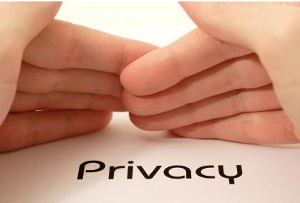12.请保护你的隐私
Psychologists tell us boundaries are healthy, that it's important to reveal yourself to friends, family and lovers in stages, at appropriate times. But few boundaries remain. The digital bread crumbs you leave everywhere make it easy for strangers to reconstruct who you are, where you are and what you like. In some cases, a simple goolge search can reveal what you think. Like it or not, increasingly we live in a world where you simply cannot keep a secret.
心理学家告诉我们和别人保持界限是健康的,而且在适当的时机逐步地向你的朋友、家人和恋人透露你的个人情况很重要。但是现在已经没有多少界限存在了。你处处留下的“数字面包碎屑”很容易让陌生人推向出你是谁,你在哪里,你对什么感兴趣。在有些情况下,一次简单的Google搜索就可以暴露你的想法。无论我们喜欢与否,我们越来越生活在一个无法保密的世界里。
The key question is: Does that matter?
问题的关键是:这很重要吗?
For many Americans, the answer apparently is "no".
对于许多美国人来说,答案很显然是“不重要”。

When opinion polls ask Americans about privacy, most say they are concerned about losing it. A survey found an overwhelming pessimism about privacy, with 60 percent of respondents saying they feel their privacy is "slipping away, and that bothers me."
在一次关于隐私的美国民意调查时,大部分人很担心失去它。有一项调查发现,人们对于隐私的安全性非常地悲观,60%的被调查者说他们感觉“隐私正离他们远去,这让他们烦恼不已。”
But people say one thing and do another. Only a tiny fraction of Americans change any behaviors in an effort to preserve their privacy. Few people turn down a discount at tollbooths to avoid using the EZ-Pass system that can track automobile movements. And few turn down supermarket loyalty cards. Privacy economist Alessandro Acquits has run a series of tests that reveal people will surrender personal information like Social Security numbers just to get their hands on a pitiful 50-cents-off coupon.
但是人们言行不一。只有一小部分美国人改变自己的行为,以保护自己的隐私。很少有人会拒绝收费站的打折,本来若是拒绝的话就可以避免使用能跟踪汽车行踪的EZ-Pass系统。很少有人会拒绝超市的会员优惠卡(积分卡)。隐私经济学家压力山德罗·奎斯蒂进行了一系列的测试,表明人们会透露像社保卡号这样的个人信息,就只是为了能拿到微不足道的便宜50美分的优惠券。
But privacy does matter — at least sometimes. It's like health: when you have it, you don't notice it. Only when it's gone do you wish you'd done more to protect it.
但是隐私的确很重要——至少有些时候是这样。它就如同健康:当你拥有它时,你没有注意它,当你失去它后,你才后悔你没有尽力保护好它。













